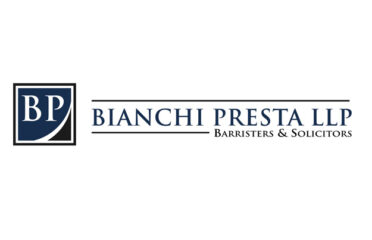What is Construction Law in Canada?
Construction law in Canada governs the complex legal relationships between property owners, contractors, subcontractors, suppliers, and professionals in the building industry. This specialized area combines elements of contract law, tort law, employment law, and regulatory compliance to address the unique challenges of construction projects. With Canada’s construction sector contributing over $141 billion annually to GDP, understanding these legal frameworks is essential for all industry participants.
This guide examines key aspects of Canadian construction law, including:
-
Provincial and federal regulatory frameworks
-
Standard contract structures
-
Dispute resolution mechanisms
-
Lien rights and bond claims
-
Recent legal developments
1. Regulatory Framework Across Canada
Provincial Legislation
| Province | Primary Construction Law Statutes |
|---|---|
| Ontario | Construction Act, Occupational Health and Safety Act |
| British Columbia | Builders Lien Act, Workers Compensation Act |
| Alberta | Builders’ Lien Act, Safety Codes Act |
| Quebec | Building Act, Act Respecting Labour Standards |
| Nova Scotia | Mechanics’ Lien Act, Construction Projects Act |
Federal Involvement
-
Canada Labour Code for federal projects
-
Canadian Environmental Protection Act
-
Indigenous procurement requirements
2. Key Contract Structures
Common Canadian Construction Contracts
-
Stipulated Price (Fixed Price)
-
Most traditional form
-
Price remains fixed unless change orders
-
Used in 62% of Canadian projects
-
-
Cost Plus
-
Owner pays actual costs plus fee
-
Common in custom residential (28% usage)
-
-
Unit Price
-
Payment based on measured quantities
-
Frequent in infrastructure (10% usage)
-
-
Design-Build
-
Single entity handles design and construction
-
Growing in popularity (up 15% since 2020)
-
Essential Contract Clauses
-
Change order procedures
-
Dispute resolution mechanisms
-
Warranty provisions
-
Termination rights
-
Force majeure (especially important post-pandemic)
3. Construction Liens and Holdback Rules
Canadian Lien Systems
-
Ontario: 60-day lien period, 10% statutory holdback
-
Alberta: 45-day lien period, 10% holdback
-
BC: 45-day lien period, 10% holdback (reduced to 5% after completion)
-
Quebec: 30-day notice requirement under Hypothec Act
Recent Reforms
-
Ontario’s Construction Act changes (2019):
-
Modernized lien process
-
Mandatory prompt payment
-
New adjudication system
-
4. Dispute Resolution in Construction
Common Canadian Methods
| Method | Usage Rate | Average Duration | Cost Range |
|---|---|---|---|
| Negotiation | 45% | 1-3 months | $5,000-$15,000 |
| Mediation | 25% | 3-6 months | $10,000-$30,000 |
| Arbitration | 15% | 6-12 months | $25,000-$100,000 |
| Litigation | 15% | 1-3 years | $50,000-$500,000+ |
Emerging Trends
-
Increased use of statutory adjudication (Ontario, Saskatchewan)
-
Growth of dispute resolution boards (for large projects)
-
Virtual hearings becoming standard
5. Workplace Safety and Employment Law
Provincial Safety Regulations
-
Mandatory safety training programs
-
Site-specific safety plans
-
Joint health and safety committees
-
Strict fall protection requirements
Employment Standards
-
Overtime pay rules vary by province
-
Termination notice periods
-
Union/non-union differences
-
Recent wage protection laws
6. Risk Management Strategies
Insurance Requirements
-
Builder’s risk insurance
-
Commercial general liability
-
Professional liability (for designers)
-
WSIB or private workplace insurance
Contractual Risk Allocation
-
Indemnification clauses
-
Limitation of liability provisions
-
Liquidated damages
-
Contingency reserves
7. Recent Legal Developments (2023-2024)
Notable Cases
-
Valard Construction v. Bird Construction (SCC 2023): Clarified lien rights
-
Graham Construction v. Champlain Homes (Ont CA 2024): Enforced prompt payment
Legislative Changes
-
BC’s Builders Lien Act amendments
-
Federal Clean Construction Policy implementation
-
Ontario’s Working for Workers Act impacts
8. When to Consult a Construction Lawyer
Seek legal advice for:
✅ Contract drafting/review
✅ Lien filings and enforcement
✅ Delay claims and disputes
✅ Workplace safety investigations
✅ Regulatory compliance issues
Industry Resources
-
Canadian Construction Association
-
Provincial construction associations
-
BuildForce Canada reports
Conclusion: Building on a Strong Legal Foundation
Canadian construction law provides the framework for successful project delivery while protecting all parties’ rights. As the industry evolves with new technologies and sustainability requirements, staying legally compliant remains fundamental to operational success.






















